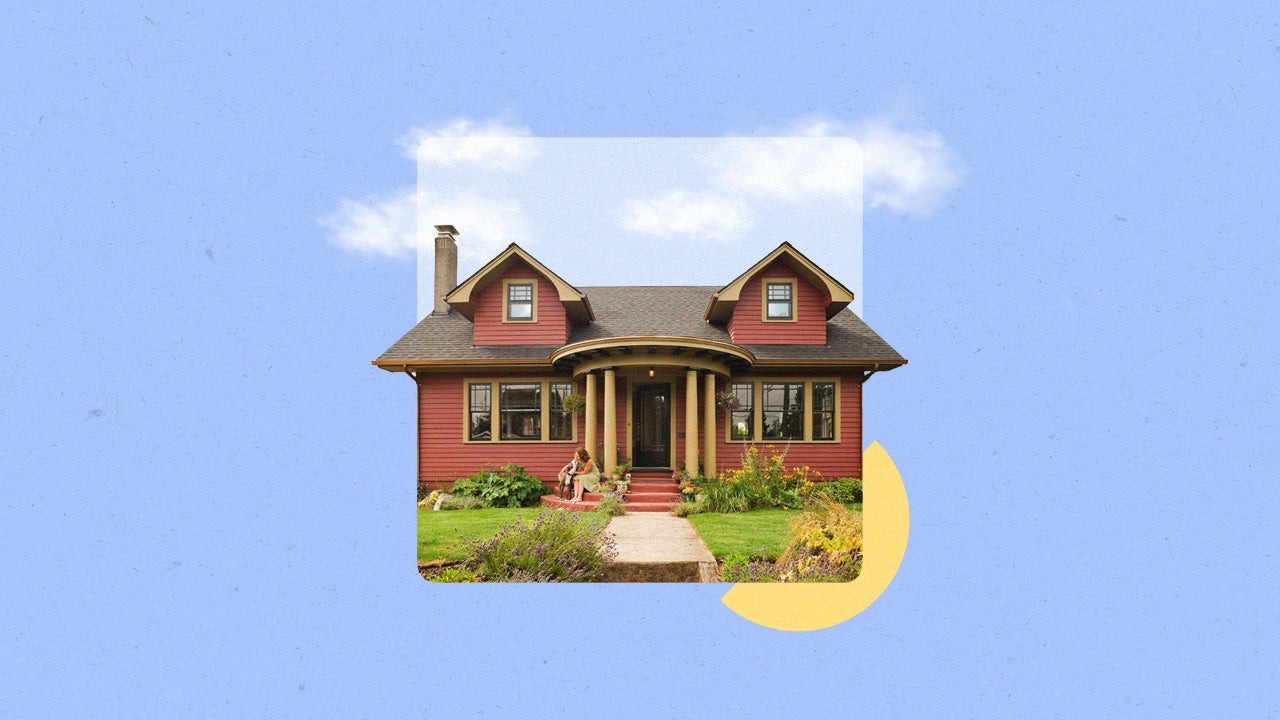What is a first mortgage?

Key takeaways
- A first mortgage is the primary or original loan on a home, typically used to buy the property.
- “First” also describes the lender’s lien position on the property. If your home were foreclosed upon and sold, the lender of the first mortgage would have first claim to the proceeds.
- Generally, first mortgages are easier to qualify for than second mortgages, such as a home equity loan.
What is a first mortgage?
A first mortgage is the primary or initial loan obtained for a property, usually the one used to buy the home.
The lender of your first mortgage also has first claim to the home, or the proceeds from the sale of the home, if you default on your loan.
How does a first mortgage work?
Depending on the type of first mortgage you get, you’ll likely need to pay a percentage of your home price upfront, in cash — the down payment — and borrow the rest. Then, you’ll make monthly payments until the loan is repaid.
The lender for your first mortgage is sometimes referred to as having the senior, or primary, lien position. That lender receives priority over the lender for a second mortgage, or junior or subordinate lien, attached to the property. It’s also possible to have more than two liens attached to your home, for example, if you have unpaid tax debt or an unpaid judgment in a lawsuit. This all comes into play if you default on any debt secured by your home.
Example of a first mortgage
Sarah buys a home priced at $450,000 with the help of a $360,000 mortgage. This is the first mortgage on the property.
After some time, her home is now worth $530,000, and she has paid down the balance on her first mortgage to $250,000. She then decides to remodel her kitchen and takes out a home equity loan — a second mortgage — for $50,000.
Later, Sarah falls behind on payments and is unable to work out a solution with her mortgage lender. The lender now has the ability to start the foreclosure process.
If Sarah’s home sells at auction for $530,000, the first mortgage lender could recoup all of the $250,000 it’s still owed, and the second mortgage lender can recoup the $50,000. If the home sells for less, though, the first mortgage lender might receive only a portion of Sarah’s balance, and the second mortgage lender might not receive anything at all.
There are some exceptions to this order, however. If you owe property taxes, they’ll typically be repaid before other claims, and if you’re filing for bankruptcy, a court can decide which claims take precedence.
Requirements for a first mortgage
In order to qualify for a first mortgage, you’ll typically need to meet baseline financial requirements, which depend on the type of first mortgage you’re getting. If you’re applying for a conventional loan, you’ll typically need a credit score of at least 620 and at least three percent of the purchase price as a down payment. Most lenders also prefer you have a debt-to-income (DTI) ratio of no more than 45 percent.
First mortgage vs. second mortgage
Both first and second mortgages are secured by the property itself, meaning the house serves as the collateral for the loan. But a first mortgage is most often used to buy the property, while a second mortgage can be used for any reason, such as:
Because they’re riskier for a lender, second mortgages may have more stringent qualifications than a first mortgage, and they generally have higher interest rates. The two most common types of second mortgages are home equity loans, which usually have a fixed rate, and home equity lines of credit (HELOCs), which usually have a variable rate.
Second mortgages can also be used to help you buy a property. Many down payment assistance programs are second mortgages: After you take out the first mortgage, you take out another, smaller loan to cover the down payment, closing costs and other immediate cash expenses. Unlike most second mortgages, though, these may charge little or no interest and be forgivable after a certain number of years.
If your first mortgage is a conventional loan, and you put down less than 20 percent, you’ll pay private mortgage insurance (PMI) premiums. This is another key difference between first and second mortgages: the latter usually don’t require PMI or a down payment at all. Your home equity — the portion of the house you already own outright — acts as your cash contribution to the deal.
Lastly, if you itemize at tax time, you can deduct the interest on your first mortgage up to a certain threshold. You can only deduct the interest on a home equity loan or HELOC if you used the funds to substantially improve or repair your home.
| First mortgage | Second mortgage | |
|---|---|---|
| Interest rates | Fixed or adjustable | Generally fixed with a home equity loan and variable with a home equity line of credit (HELOC) |
| Mortgage interest tax deduction | Deductible on up to $750,000 of combined mortgage debt (or $1 million if loan was obtained before Dec. 16, 2017) | Only deductible within $750,000 combined limit if mortgage debt was used to buy, build or make improvements to the property |
| Mortgage insurance | Required if down payment is less than 20% | Not required |
| Size of loan | Cost of the property minus the down payment | Based on available equity and other factors |
FAQ
Additional reporting by Elizabeth Rivelli
Why we ask for feedback Your feedback helps us improve our content and services. It takes less than a minute to complete.
Your responses are anonymous and will only be used for improving our website.
You may also like

What is a second mortgage, and how does it work?


What is collateral for a mortgage?




